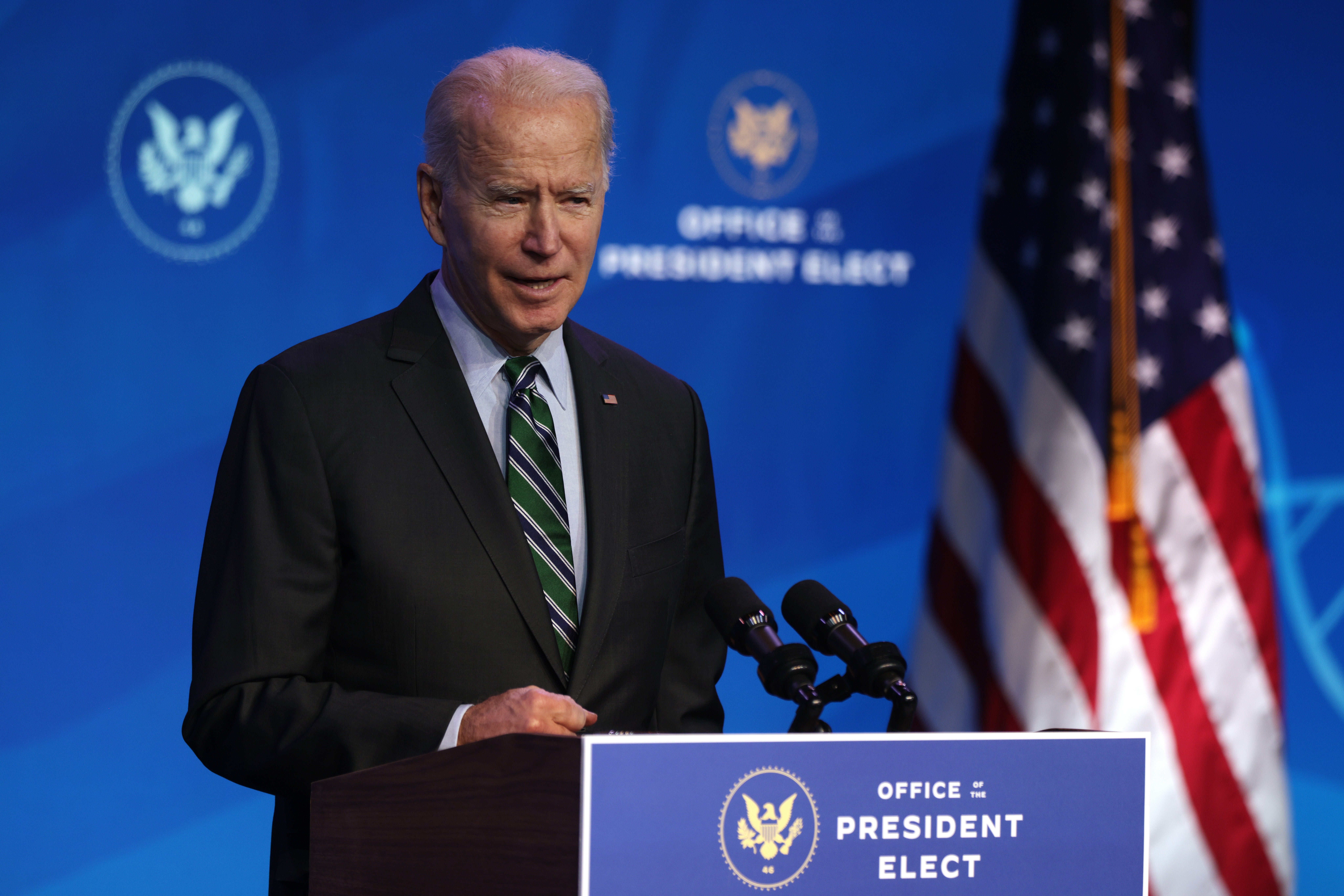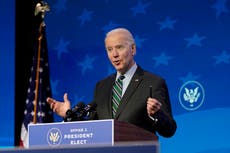The success of Joe Biden’s presidency will rely largely upon the economy
The new administration’s efforts will have to take place against a background of rising inequalities of wealth, writes Hamish McRae


The economy, stupid”. That slogan – the prefix “it’s” came later – was written on the wall of Bill Clinton’s presidential campaign office in Little Rock in 1992 by his strategist James Carville. It should ring out loud today.
The success or otherwise of Joe Biden’s presidency will turn on whether the US makes a truly successful economic recovery. Of course a vast range of other things matter: success in healing racial, cultural and political divisions are at the top of the list. But if the economy fails, everything else fails. Economic failure would bear down on every other aspect of the new administration’s policies. It would strip away resources for its programmes, but perhaps even more important it would strip away its authority. So what will happen?
There are really two dimensions to that question. The first is how well the US recovers from the economic hit of the pandemic. The second is how well the economy performs in a structural sense over the next four years.
A huge amount of attention has gone into the first. We are getting the new $1.9 trillion stimulus that Janet Yellen, the nominee for post of treasury secretary, spoke about to the Senate yesterday. We have the template of the last recession, the one that followed the banking crash of 2008. It is early days but this one looks like being deeper but shorter.
The policies to jack the economy out of the slump, ultra-easy monetary policy and a huge fiscal boost, are broadly similar to those used then. They worked. America led the world out of recession, gaining ground against most of Europe and not losing too much against China.
This time it seems reasonable to expect them to work again. They will be helped by the fact that among the large western economies the US is achieving the second fastest rollout of vaccines. The only sizeable country ahead of it is the UK.
That is encouraging. But this is hopefully only a six-month, at most a one-year, issue. The success, assuming the US is successful, will not define the presidency. In three years’ time the longer-term structural performance of the economy will be the thing that matters most.
There are some huge questions here. For example, will real wages for middle-income families be rising? Will the US still suffer from jobs being outsourced abroad? Will the US high-tech dominance be sustained? And so on.
Donald Trump identified these concerns, but saw things mostly in terms of other countries, especially China, cheating America. His response was a trade war. But international trade is not a zero sum game, and by stumbling in the various trade negotiations he failed to make much impact on the issue. Trade is one of the immediate issues the Biden administration will have to face.
There will be pressure to end the trade war with China, but there will also be pressure to keep American jobs in America. The challenge, however, is not really one of negotiating trade deals, or not as the case may be. Rather it will be trying to find ways in which the US’s great strengths in service industries can be more widely deployed.
Physical trade worldwide will be curbed for some time, as supply chains are shortened and simplified. Trade in services, by contrast, will continue to grow. So the US is most likely to prosper by playing to its strengths in creating and exporting new services, rather than protecting industries that are not particularly competitive. Put another way, in the long run creating new jobs is more important than protecting old ones.
However, and this is really important, the new administration has to do something for Main Street America. You cannot sustain social harmony if the greatest rewards go to high-tech entrepreneurs on the west coast and financiers on the east coast. Equity matters, and one defining feature of this administration will be how successful it is in lifting the living standards and quality of life of the nation’s millions of middle-class families.
That is easier said than done, and the Biden administration’s efforts will have to take place against a background of rising inequalities of wealth brought about by the ultra-easy monetary policies used to combat recession. Prices are projected to rise by more than 10 per cent this year.
That is great if you own your home, not so great if you are struggling to buy one. And the more valuable that home, the more money the owner makes. US shares are at or close to all-time highs. Again great if you own shares, but the larger your portfolio the wealthier you become.
Of course no one should welcome a financial market crash. But finding ways to spread the country’s wealth will be one of those great tasks that Biden needs to make a start on.
We should not expect too much from any president, for the economy is a massive, hulking beast that has to be cajoled and led, not kicked or threatened. But Biden has assembled a group of talented and decent people in his economic team who understand all that. It is in the self-interest of all Americans, whatever their politics, that they should have a following wind.




Join our commenting forum
Join thought-provoking conversations, follow other Independent readers and see their replies
Comments